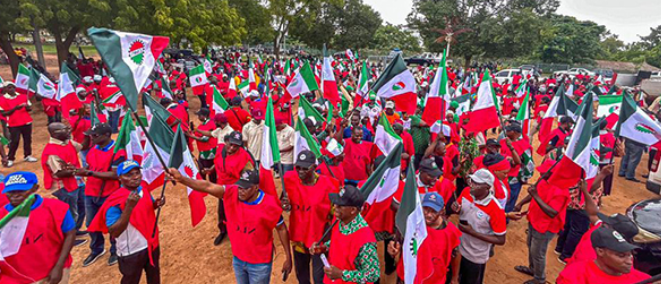The Nigerian electricity distribution sector has been embroiled in controversy following reports of mass dismissals of workers by the Kaduna Electricity Distribution Company (KEDC) and the Ibadan Electricity Distribution Company (IBEDC), triggering protests and industrial action. The Nigeria Labour Congress (NLC) has condemned KEDC’s actions, urging the reinstatement of the dismissed workers and advocating for dialogue to resolve the escalating tension. While KEDC reportedly sacked 450 workers, IBEDC’s dismissal figures remain less clear, with conflicting reports emerging about the scale of the layoffs. These dismissals have spurred significant unrest within the workforce and disrupted power supply in affected regions.
The Ibadan Electricity Distribution Company (IBEDC) faced industrial action as its workers initiated a strike to protest a range of grievances, including the non-implementation of the new minimum wage, unpaid pension and cooperative deductions, and the alleged dismissal of 17 staff members. This strike action led to disruptions in power supply and business operations across IBEDC’s service areas, including Ilorin, Abeokuta, and other locations. The company acknowledged the disruptions and directed customers to online platforms for transactions while urging understanding as they sought to resolve the matter. However, the workers’ union, the National Union of Electricity Employees (NUEE), contended that the IBEDC management had failed to address their concerns despite months of negotiations.
The NUEE highlighted the non-remittance of pension and cooperative deductions, amounting to billions of naira, and the lack of imprest, forcing workers to use personal funds for operational expenses like fixing faults and bill distribution. They also accused the management of refusing to implement the new minimum wage and of carrying out indiscriminate dismissals without due process. The union drew parallels with the situation at KEDC, expressing concerns about a similar pattern of mass dismissals and emphasizing the need for a fair resolution. They argued that the management’s actions demonstrated a lack of regard for the welfare of their employees and warned that their patience was wearing thin.
In response to the strike action and the allegations made by the NUEE, IBEDC’s Coordinating Head of Corporate Services, Angela Olanrewaju, offered a contrasting narrative. She asserted that the dismissals were performance-based and carried out in accordance with the company’s conditions of service and due process. Olanrewaju further emphasized IBEDC’s commitment to staff welfare and claimed that the company had consistently paid full salaries despite the challenging economic environment. She urged stakeholders and customers to disregard the strike reports, framing the industrial action as a localized disruption rather than a widespread issue.
The divergent accounts from the workers’ union and the IBEDC management underscore the complexity of the situation. While the NUEE paints a picture of systemic disregard for workers’ rights and welfare, IBEDC maintains that its actions are justified and performance-driven. The intervention of the NLC adds another dimension to the conflict, with the labor organization siding with the workers and calling for their reinstatement. The NLC’s warning of potential broader sympathy action highlights the risk of the dispute escalating and impacting the wider electricity sector.
The ongoing disputes within the electricity distribution companies raise critical questions about labor relations, corporate governance, and the stability of the power sector in Nigeria. The contrasting narratives and the escalating tensions underscore the need for transparent investigations, constructive dialogue, and a commitment to finding sustainable solutions that protect the rights and welfare of workers while ensuring the reliable provision of essential electricity services. The involvement of the NLC and the threat of wider industrial action suggest that the situation could have far-reaching consequences if not addressed effectively. Ultimately, a balanced approach is required to ensure both organizational viability and the fair treatment of employees within this crucial sector.


